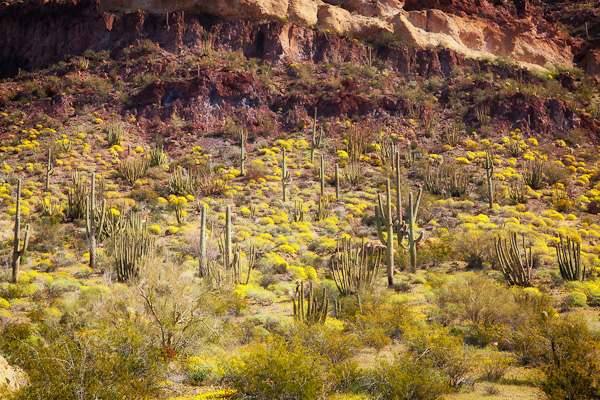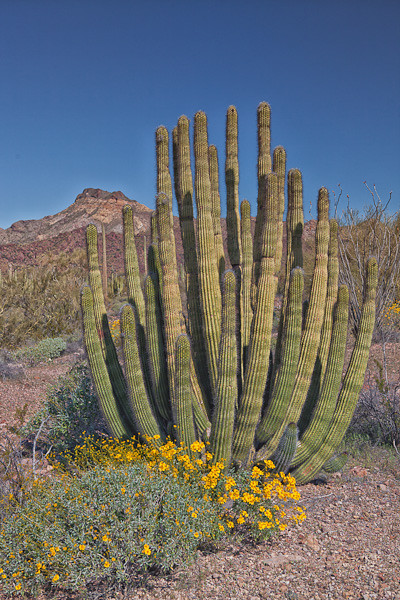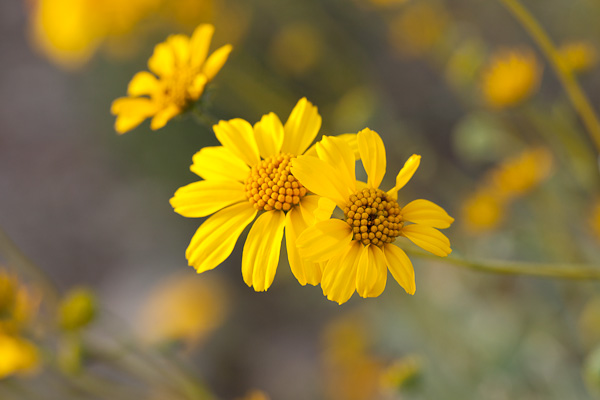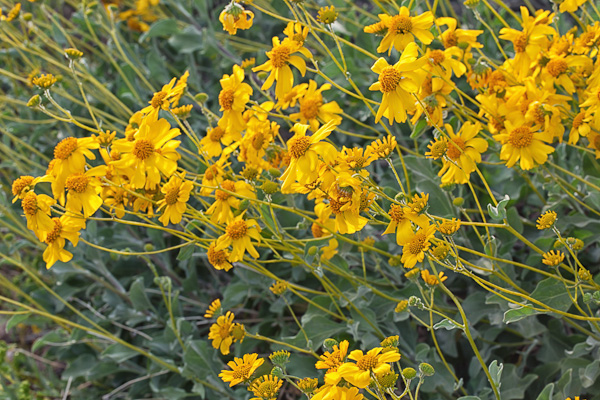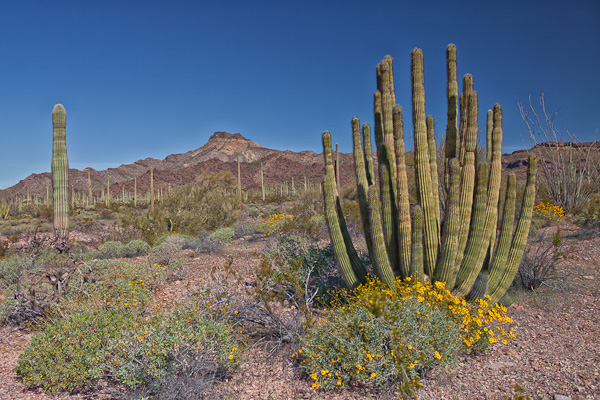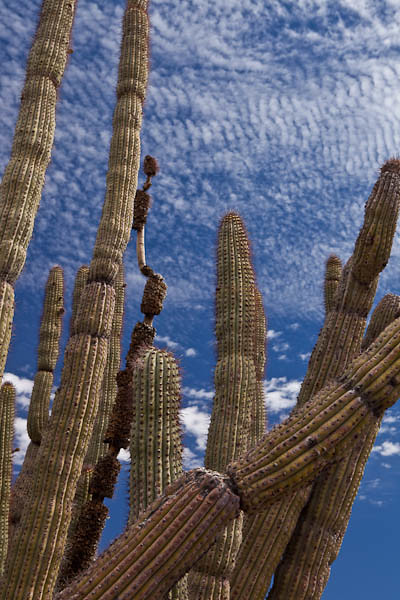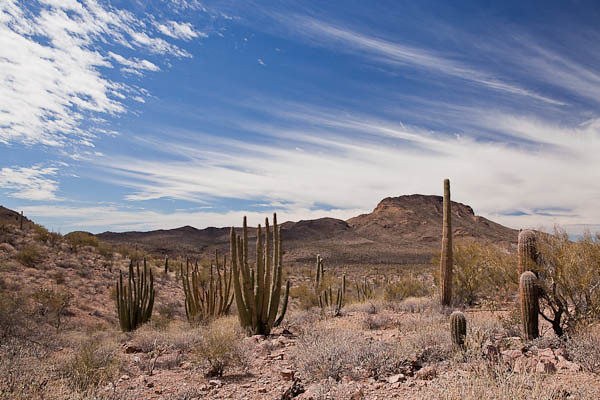Transparent and intangible as sunlight, yet always and everywhere present, [the desert] lures a man on and on, from the red-walled canyons to the smoke-blue ranges beyond, in a futile but fascinating quest for the great, unimaginable treasure which the desert seems to promise. Once caught by this golden lure you become a prospector for life. ~ Edward Abbey
The organ pipe cactus shares this mountainside with saguaros, mesquite, and blooming brittlebush. The organ pipe has many arms which appear to come from a low-to-the-ground center and resembles a pipe organ, its namesake. Some of the largest specimens grow to twenty-five feet, but most of the cacti I saw at Organ Pipe National Monument were in the twelve to eighteen feet range.
Although the lucky organ pipes that make it through their first years become giants in the Sonoran Desert, they are a bit on the slow side when they are getting started. In the wild, an organ pipe is only four inches high when it celebrates its eighth birthday. A three foot tall cactus will be about twenty years old, and it will finally reach an adult height of twenty feet when it is forty five or fifty years old.
Organ Pipe Cactus grow in Sonora, Mexico and a few are seen in the Tucson area, but the majority of Organ Pipe Cacti that grow in the United States are in or very near the monument. These cacti are afforded little protection in Mexico, so it is vital that we remain committed to maintaining this region for the protection of this unique cactus.
—————–
Bo Mackison is a photographer and owner of Seeded Earth Studio LLC. Love the organ pipe cactus and Organ Pipe Cactus National Monument. What an amazing place!
